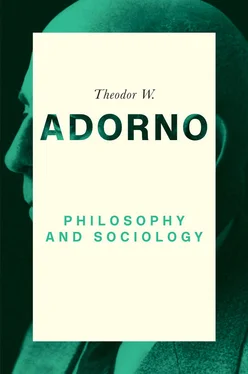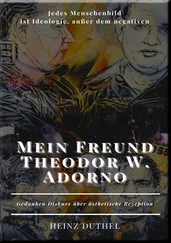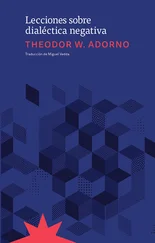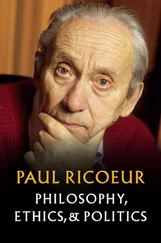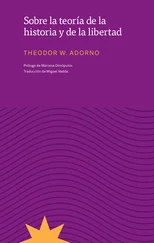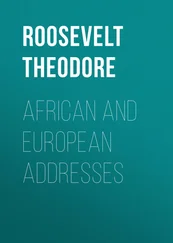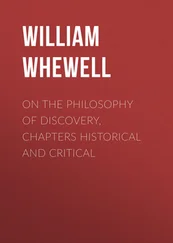In the climate that prevails today around the problem of philosophy and sociology, there has been a quite decisive change precisely in this regard; when I said right at the beginning of this lecture that, in a sense, the Kantian problematic is still directly relevant for us in this connection, I must now correct that claim somewhat or present it in a more nuanced manner. In other words, what we find today is that philosophy is now hardly inclined to allow sociology any room at all, and that both fields have parted from each other in mutual acrimony. They now display a mortal fear of coming into contact with each other and thus I might even say of infecting each other – something it would almost need a Freud to explain. The idea that the sciences must be legitimated as purely and autonomously as possible without borrowing anything from elsewhere is an inheritance from the nineteenth century which has played a very important role in connection with the problematic notion of presuppositionless enquiry, 33a notion that continues to draw on that inherited idea; while philosophy is increasingly thrown back upon its own resources as the sphere of its authority is progressively cut back by the advances of the so-called positive sciences (and it is of the essence of scientific progress that poor old philosophy, which once also embraced geography, medicine and who knows what else, increasingly finds itself robbed of any connection with such fields). The result is that philosophy guards even more jealously the position that it has now at least managed to establish for itself as just one branch among other branches of enquiry, which is why it not only refuses to tolerate any invasions of its own territory on the part of sociology or psychology but even attempts wherever possible to attack these disciplines even in areas where they perhaps seem to be most appropriate. Thus in the Kantian tradition today, insofar as this still survives in Germany, we no longer find that Kantian tolerance towards psychology as a kind of positive science in contrast to philosophy. There is no question of this, and what we find instead is that psychology and especially sociology appear from the start as a threat to the philosophical peace; and where modern existential ontology does pay any attention to psychology or sociology, it specifically tries to do so in a way that gets rid of the empirical salt, of the empirical thorn, and seeks to grasp the psychological realm by means of extremely formal categories that have been purged of any actual concrete meaning. In this connection you might think of the fashion for so-called Daseinsanalyse or ‘existential analysis’, 34a trend which is very pronounced today, in contrast to the psychoanalysis that explores psychical life as a field of concrete experience. Thus we can say that modern philosophers in general, if they are philosophers in an emphatic sense and not simply methodologists like the logical positivists for example, are anti-sociological in outlook – with the exception, I would add, of a very few individuals, some of whom you will find here in Frankfurt. Thus the anti-empirical tendency of philosophy is now extended to fields that have been removed from the realm of philosophy. Where there is still something such as philosophy to be found, it tends to treat sociology negatively and refuses to let it be even in its native territory, so to speak. And in the next lecture you will hear how the reverse is also true as far as the kind of naive sociology which does not reflect upon itself is concerned.
1 1 T. W. Adorno was appointed Assistant Professor of Philosophy and Sociology in the Faculty of Philosophy at the University of Frankfurt in 1953; four years later he became Full Professor, a position which he held until his death in 1969.
2 2 Max Horkheimer (1895–1973) had been Professor of Social Philosophy at the University of Frankfurt between 1930 and 1933. After his return from exile in the USA he held the post of Professor of Philosophy and Sociology from 1949 until 1959.
3 3 In his lecture course Introduction to Sociology delivered in the summer semester of 1968, however, Adorno specifically says that ‘the career prospects for sociologists are not good.’ He continues:It would be highly misleading to gloss over this fact. And far from improving, as might have been expected, these prospects have actually got worse. One reason is a slow but steady increase in the number of graduates; the other is that, in the current economic situation [Adorno is referring to the period of recession in 1966 and 1967], the profession’s ability to absorb sociology graduates has declined. I should mention something that I was not aware of earlier, and have only found out since becoming closely involved in these matters. It is that even in America, which is sometimes called the sociological paradise, and where sociology does, at least, enjoy equal rights within the republic of learning, it is by no means the case that its graduates can effortlessly find jobs anywhere. So that if Germany were to develop in the same direction as America in this respect, as I prognosticated ten years ago, it would not make a significant difference. (NaS IV.15, p. 9; Introduction to Sociology, trans. Edmund Jephcott, Cambridge, 2000, pp. 1–2)
4 4 See Adorno’s essay ‘On Statics and Dynamics as Sociological Categories’ (GS 8, pp. 217–37), which was first published in this form in 1962, although an earlier version of the piece had appeared in 1956 under the title ‘Observations on Statics and Dynamics’ (See Kölner Zeitschrift für Soziologie und Sozialpsychologie, 8/2 [1956], pp. 321–8).
5 5 Reading ‘nicht’ for ‘wach’.
6 6 Adorno’s essay ‘Sociology and Empirical Research’ was originally published in Klaus Ziegler (ed.), Wesen und Wirklichkeit des Menschen: Festschrift für Helmuth Plessner, Göttingen, 1957, pp. 245–60. In a note to that essay Adorno says: ‘The text which is published here is a revised and expanded version of theses which were originally presented in a discussion between German social scientists which took place on 1 March 1957 at the Institute for Social Research at the Johann Wolfgang Goethe University of Frankfurt’ (ibid., p. 245). The text can now be found in GS 8, pp. 196–216; see the Editor’s Afterword in GS 9.2, p. 407.
7 7 See Helmut Schelsky, Ortsbestimmung der deutschen Soziologie, Düsseldorf, 1959. In this book Schelsky (1912–1984) engages in detail with Adorno‘s critique of empirical social research (see, in particular, pp. 28f., 50–2, 67–89; see also NaS IV.15, p. 81; Introduction to Sociology, Jephcott, p. 105).
8 8 See René König, ‘On Some Recent Developments in the Relation between Theory and Research’, in Transactions of the Fourth World Congress of Sociology, Vol. II, London, pp. 275–89. Adorno’s personal library included an offprint of this essay (Nachlaßbibliothek Adorno 5694). See also the letter from König (1906–1992) to Adorno of 7 January 1959 and Adorno’s letter to König of 29 September 1959 (René König, Schriften: Ausgabe letzter Hand, ed. Heine von Alemann et al., vol. 19: Briefwechsel, vol. 1, ed. Mario König and Oliver König, Opladen, 2000, pp. 506 and 512).
9 9 See the opening section of the ‘Introduction’ to the Critique of Pure Reason: ‘On the Distinction between Pure and Empirical Knowledge’ (Immanuel Kant, Werke in sechs Bänden, ed. Wilhelm Weischedl, Wiesbaden, 1956, vol. II: Kritik der reinen Vernunft, pp. 45f. (B 1–3); Immanuel Kant’s Critique of Pure Reason, trans. Norman Kemp Smith, Macmillan, 1933, pp. 41–3).
10 10 In his lectures on Kant’s Critique of Pure Reason, delivered in the summer semester of 1959, Adorno discusses this ‘problem of constitution’ in detail and notes that ‘quotidian existence, factuality, is just as much a precondition of the possibility of thinking about mere forms as is its claim that without these forms the contents of experience could not come about at all’ (NaS IV.4, p. 239; Kant’s Critique of Pure Reason, trans. Rodney Livingstone, Polity, 2001, p. 157). This recognition leads Adorno at the end of the lecture to proposea variation of the famous Kantian project of ‘the critical path that alone is open’. We shall indeed adopt this Kantian project of the critical path. What I have been doing was very consciously carried out in the spirit of an immanent critique of the Critique of Pure Reason. My arguments have been moving within the conceptual apparatus and the lines of thought developed by Kant. At the same time, their aim was to break out of the prison of the so-called problem of what constitutes what. They terminate in the proposition that the dialectical path alone is open. (Ibid., p. 241; Livingstone, p. 159)
Читать дальше
